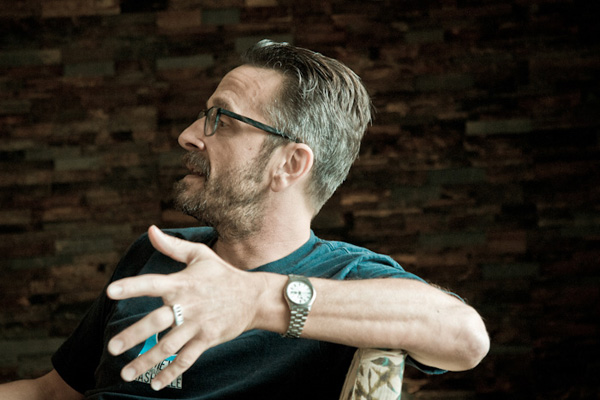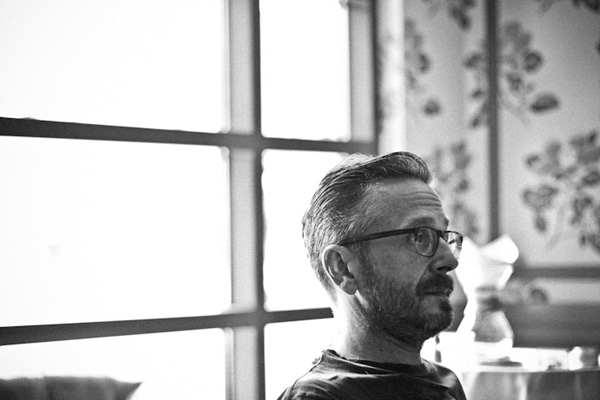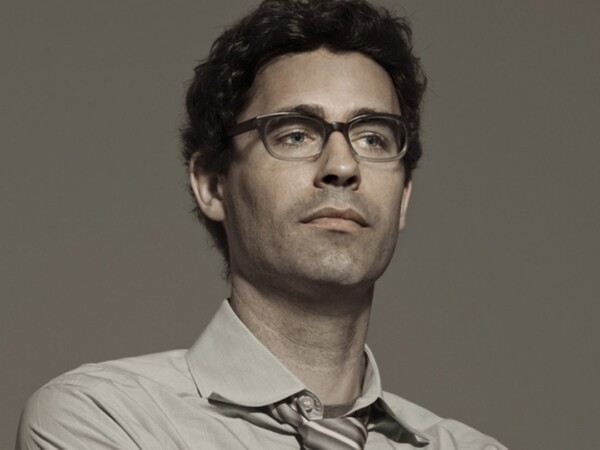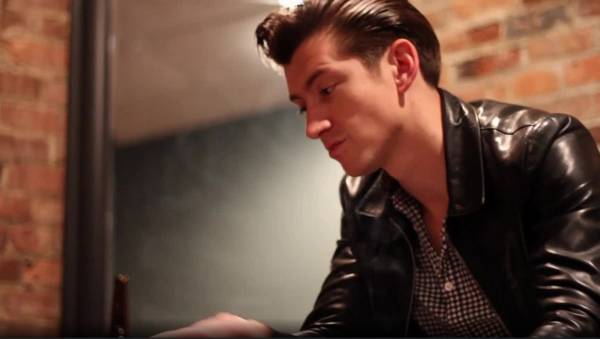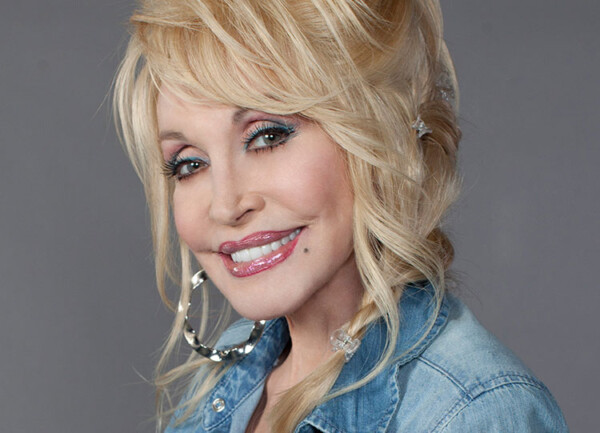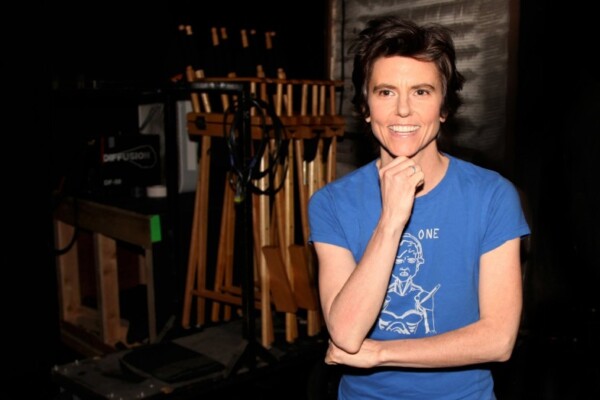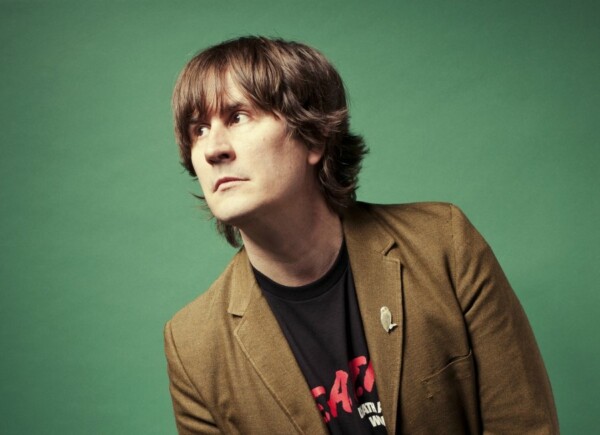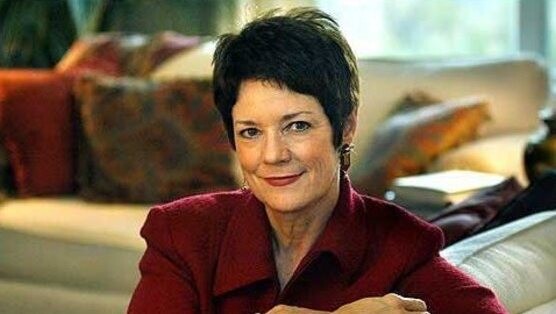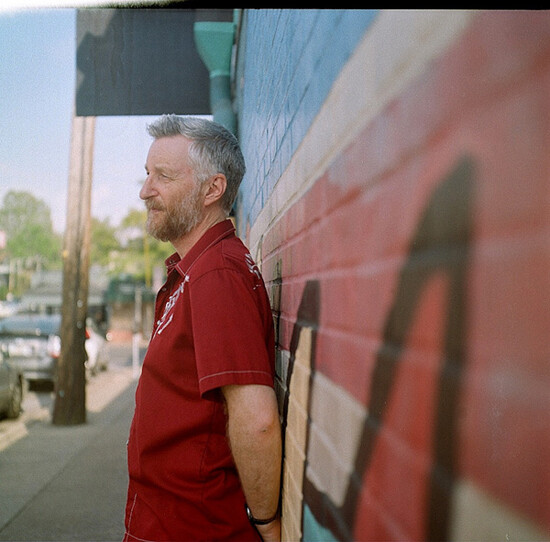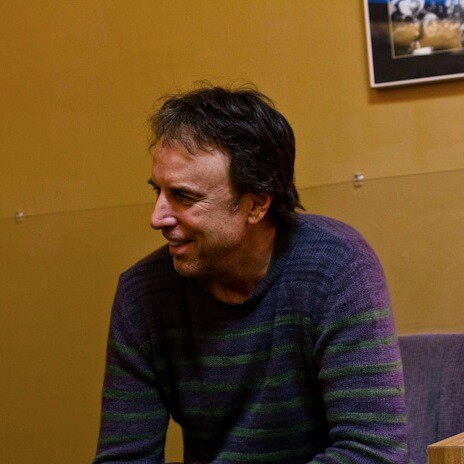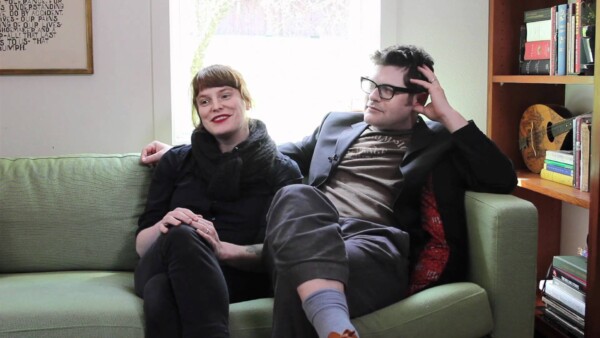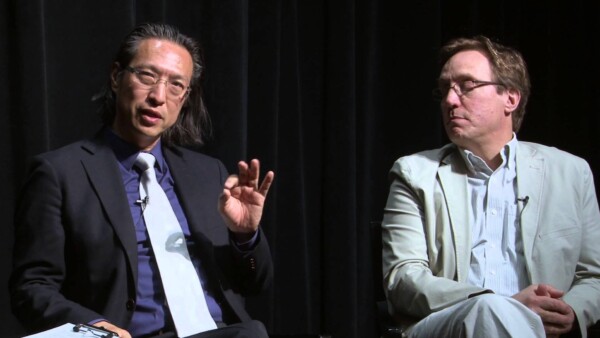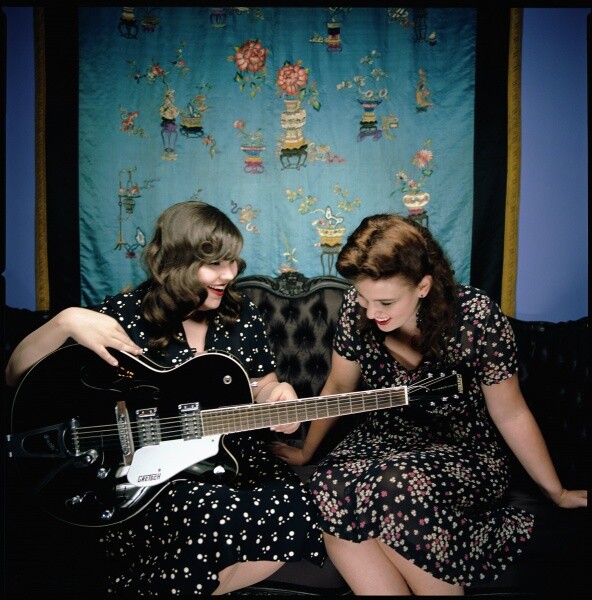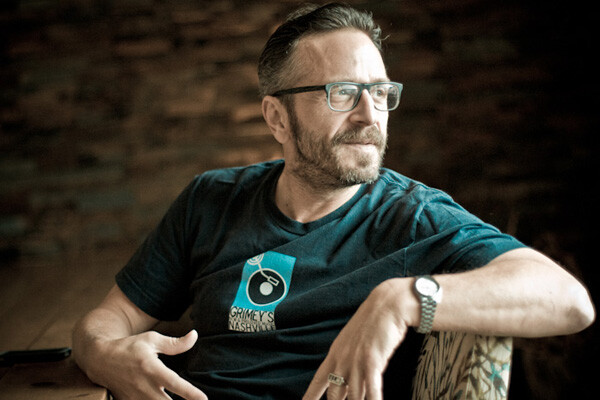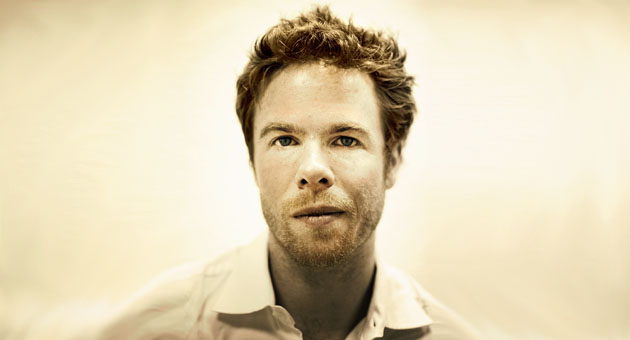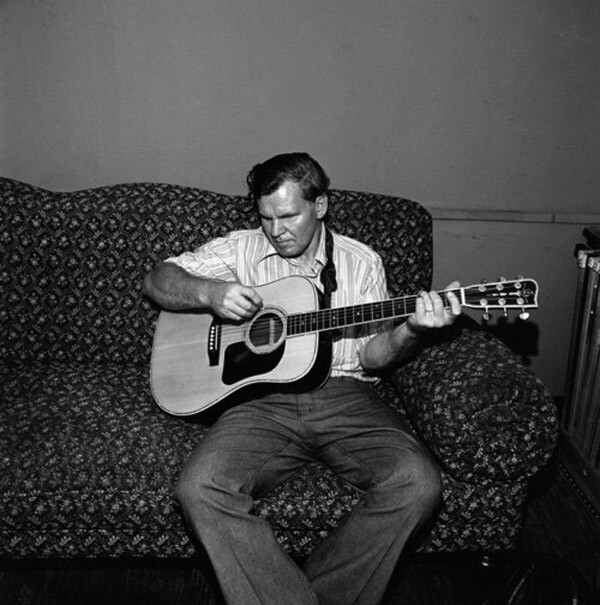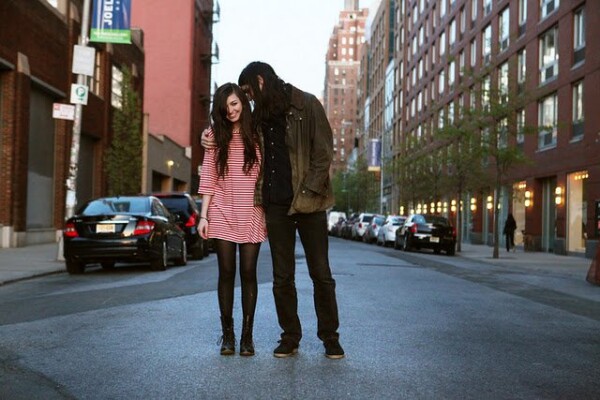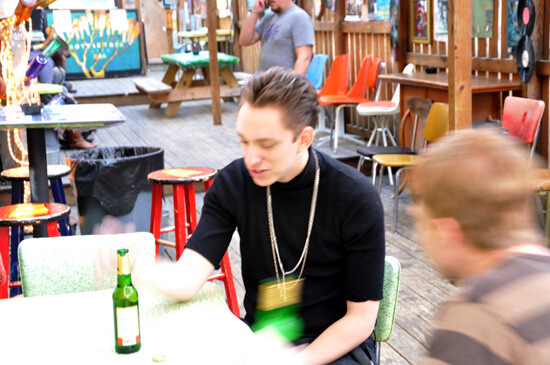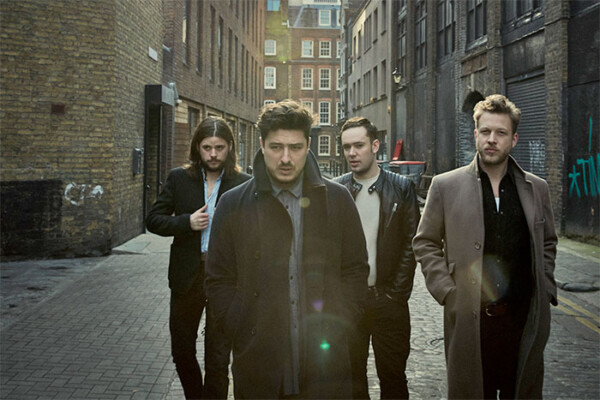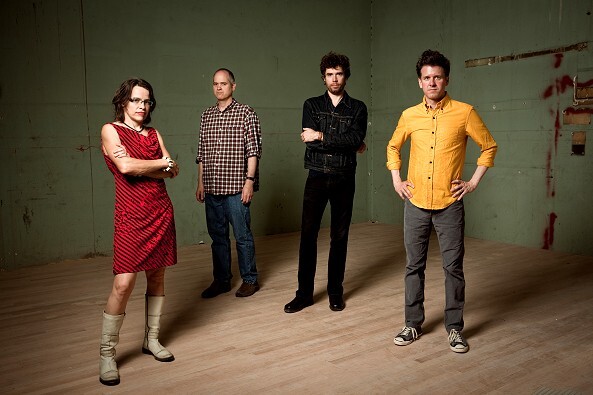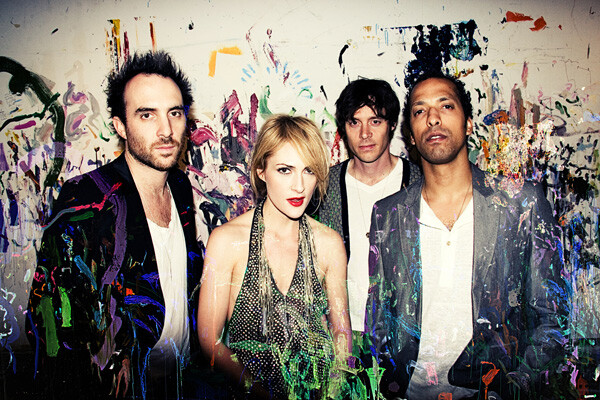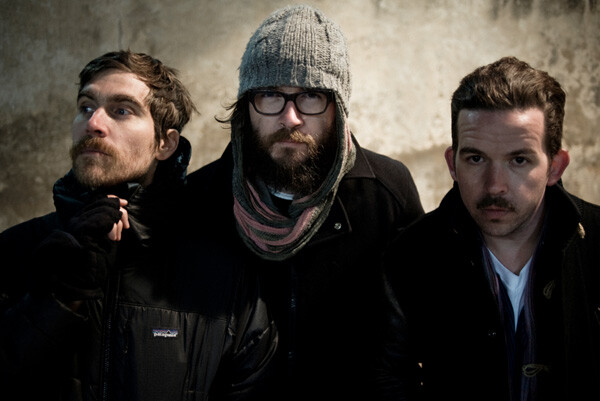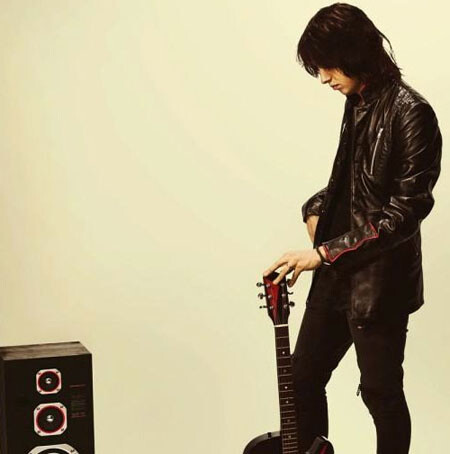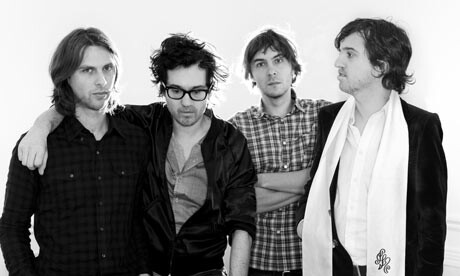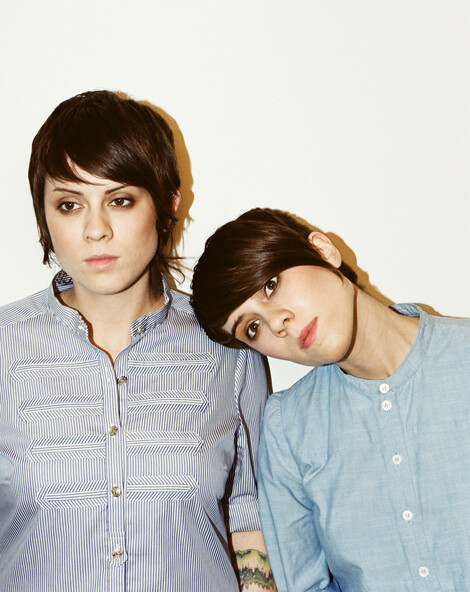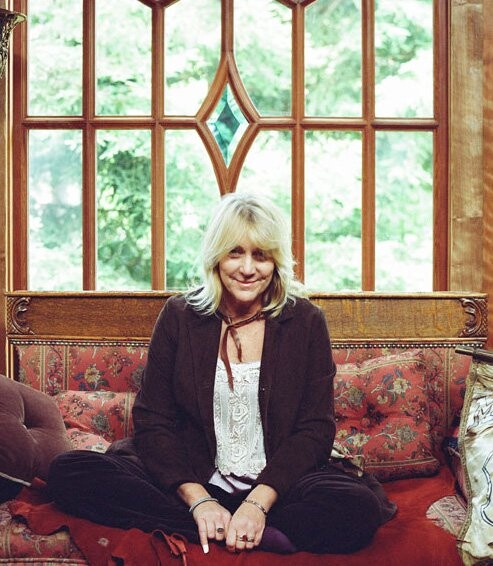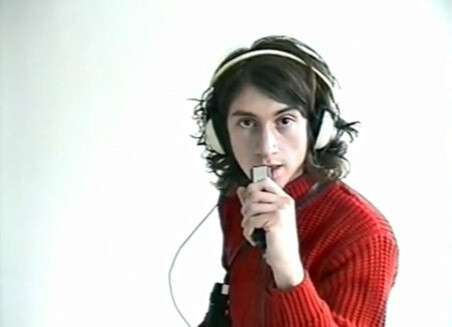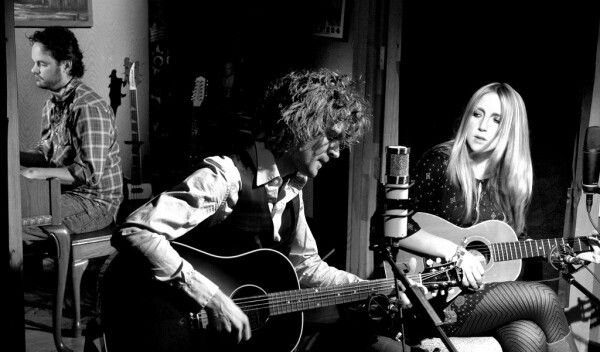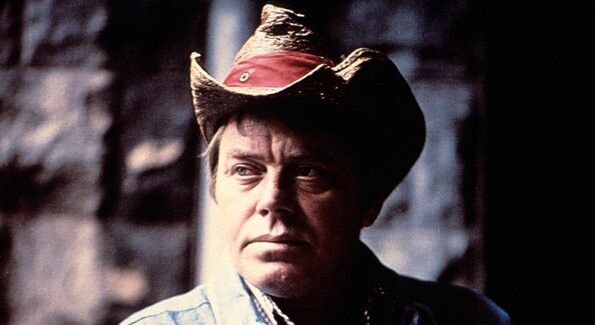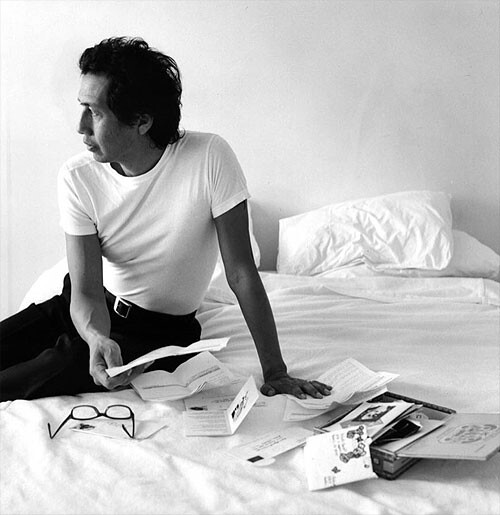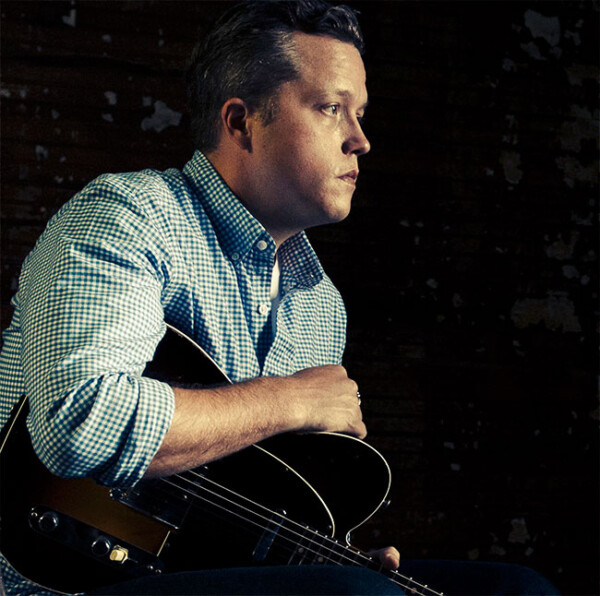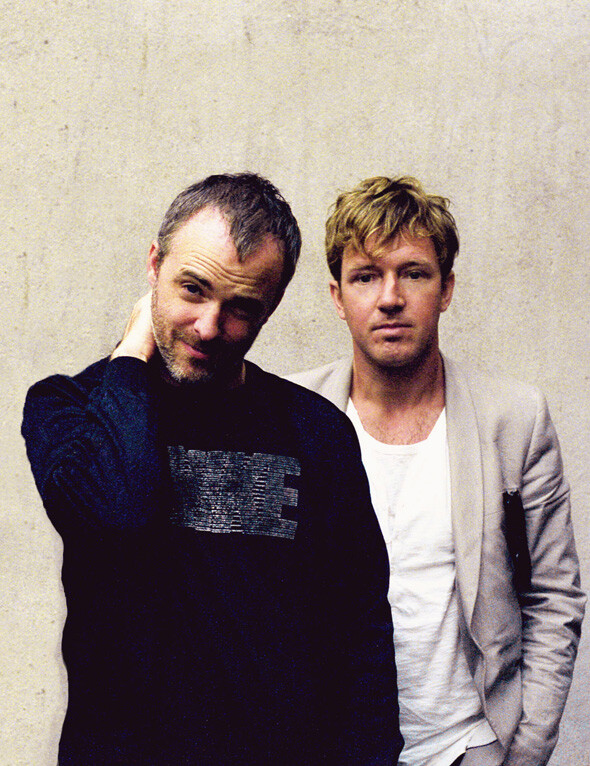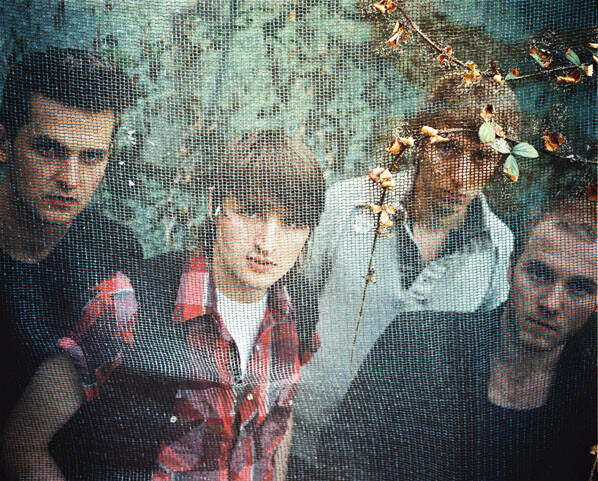Skip Matheny – currently a songwriter in the band Roman Candle and former bartender in a retirement community, was recently able to catch up with comedian and creator of the WTF Podcast Marc Maron to talk about his creative process, his relationship to music, and the rough intersection of the two.
![]()
This (non-alcoholic) interview took place at the Hutton Hotel in Nashville when Marc was in town for two shows at Zanie’s Comedy Club. I was glad to get the chance to talk with him about his creative process, as he was using his shows that weekend to work out new material. The photographs were taken Will Morgan Holland, the coffee and barista were generously provided by Crema. The barista was Logan Matheny.
Â
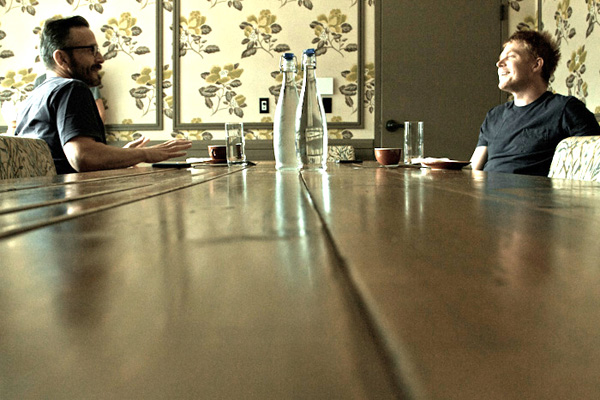
In the Fiona Apple podcast that came out recently, you were talking about your creative process for stand-up, and how you kind of write on the spot, on stage, with just a rough outline of ideas to work from. It reminded me, from a musical standpoint, of the way somebody like Neil Young works, where he is more or less depending on the moment itself, for the creative thing to take shape, and the finished document kind of arrives right there and then. What I thought was funny is that you said, when something good happens, you always hope somebody in the crowd is recording it.
Yeah certainly in the day and age we live in now, if I were more disciplined or less insecure, I would tape everything. But I’ve found that you end up becoming superstitious — however you want to rationalize the fact that you didn’t [capture] something on your own, given that I could do it with my fucking phone, is something beyond — A lot of times when I turn the recorder on and I do something great, the batteries don’t last or whatever, and then part of you wonders “If I don’t record this maybe something good will happen.” It’s a weird bit of business how insecurity and the creative mind works.
Some moments though, happen spontaneously, and they’re never going to happen again. I find those the most rewarding. Even if I record them I don’t do anything with them, or even listen to them generally, because its something that happens in a moment with an audience. It is just “that’s it.” And it goes away. And some people might say “That’s stupid. Why let anything go away?” And I’m like “I don’t know. I don’t have an answer for that.” There’s something human about it.
I was talking to [Chuck] Klosterman once about people attacking celebrities on the the internet, specifically musicians. Like for someone to tweet at an artist, “You suck man, you can’t play guitar.” He brought up the fact that back in the day, the only times those conversations took place were when you were in the back of some independent music store, and there’s that one dude who would say “Jimmy Page sucks” and then you’d either say “Come on man” or it would just dissipate and that would be the conversation [laughs]. But now, and I don’t think he’s on Twitter but as an example, if someone says “Jimmy Page sucks @jimmypage” this genius is in this position to say “Well I actually think I’m pretty good at guitar, I mean everything would indicate…” And I thought that was a good point to say that some things may just be more beautiful when they happen in a moment, and that moment is supposed to go away.
Neil Young is an interesting example to me because Neil Young at his best really has created a sound and a way of expressing himself that is a bit timeless. You can listen to earlier Neil Young anytime, and it’s not dated. It’s a pretty amazing feat. And he’s a guy that has experimented with other things to lesser and more success. But the great Neil Young songs, you don’t listen to them and go “Oh this is from the Sixties.” It’s a genuine thing. Which is a magic that music has that comedy doesn’t have.
But my point is that when I work shit through, like I did about an hour and a half the other night of stuff I had never recorded before and I improvised a lot of it and there were moments there that I just found. And that’s how I write. So now, the weird thing about recording it, is that I don’t know if I will go back and listen to that recording. And maybe I should. Maybe that’s the more disciplined thing to do. But I do know the stuff that really latches on is just the stuff that I hold in my head, and then do it again and again and it kind of becomes a groove.
What kind of headspace does that require? Do you have to prepare for a while, or if you wake up in the morning, could you be on stage in half an hour?
I can do that. I work from outlines. But with this [writing process], I kind of corner myself. I get tired of my bits. To be honest with you I didn’t even really tour that much in terms of doing material from my last album, which was only last year. There are bits on there I have really only done a few times since, and some of them I can’t even remember.
Most of my albums, I would say all of them, have a good chunk of material that only happened that night. I don’t know why. People come up to me and say “that bit you did…” [and I think] “I’ve never done that bit again.” And I don’t know why. But there’s stuff on all my CDs that I’ve never done again.
The other night I did a cheap show which I said was basically ‘me working on shit.’ $10 ticket, no drink-minimum. And I did a joke on preparing, and I said “This is how I work. I don’t prepare. Because if you don’t prepare and you pull it off then you are a genius. And if you don’t pull it off, Hey you didn’t prepare.” Again though that is insecurity. It could be seen as an excuse for not being more disciplined about your creative process.
Talent is a weird thing. If you have it, it’s going to kill you if you don’t harness it properly. It’s like that old Bongwater song, “Talent is a Vampire.” Which for some reason sticks with me. Sure it’s a gift, but people that have it, especially if they can’t wrangle it somehow, can get pretty beat up by it. I mean when people say “talented” I never thought of myself as “talented.” I don’t necessarily know what it means. It’s a very broad thing. But it’s something. It’s nebulous. I’ve seen a lot of people in [comedy] that are incredibly talented performers that just never wrangle it. And what “wrangling it” means I’m not sure. Because then you have these definitions like “Why harness something? Maybe it’s just misunderstood.”
But to address the last question, I prepare differently at different times. If I am on the road every weekend, a lot of times I will lock into a flow. I usually leave room [in the show] to dick around, or to explore a little bit, and usually something happens in the room that will enable that. But I am not a jam band. I am not going to noodle for a half an hour and assume everyone is enjoying it. I can gauge that. I am not going to give people an opportunity to go to the bathroom with a particularly long improvisation on something esoteric. But if I am working on stuff I usually figure out a place to start and have some points, or an outline of things I want to explore. And other times if I am in a groove, with a structure, I can get onstage in a half hour.
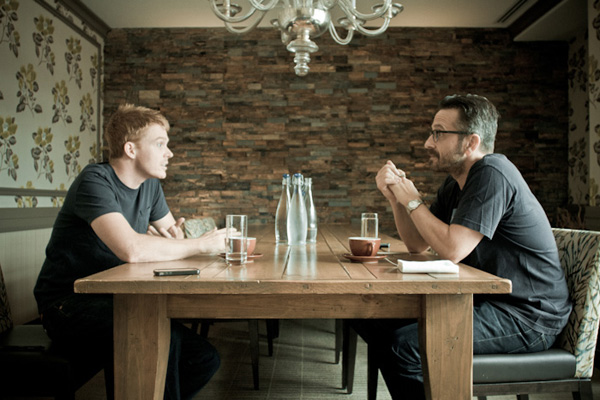
How much thought and time goes into the making of the actual comedy records? When I first heard you get to the album title in your last record, This Has to Be Funny, it was incredibly moving and it seemed really crafted.
That was the first time I’ve done that. It was the only time I’ve done that. “This has to be funny.”
So did you go backwards and listen and think “Okay, great, this is the album title.”
No Ira Glass thought of that. I wish I could take credit for it. That was a real moment. When I recorded that last album, all of it was from one show. I did four shows. And that’s really in my mind the best way to make a comedy record. That record sounds good. You can hear that the audience is a small audience. It was packed out but it only seated about 120 people, if that. All that was really done was from one performance and things may have been taken out, to edit down, because I was doing about an hour and a half then.
Leading up to that I created, I don’t think intentionally, to generate energy for the record, a tremendous amount of drama in my life before I went to tape that album. I had a couple things to do when I was in NY – Four shows for a CD and I was going to be interviewed by the New York Times. So I though the night before I left for New York would be a good time to break up with a girl who I thought was dangerous to me. And change my locks, and not get any sleep. I just created all this drama. That was where I was at when I recorded that album. I was getting texts every ten minutes from a woman who was mad at me. I didn’t know if my house was okay and all this other shit. And that was the space I was in. I don’t know why I had to do that or make that decision. After three months of not being with her, she now lives with me [pauses]. But you know, the blues is a funny thing [laughs].
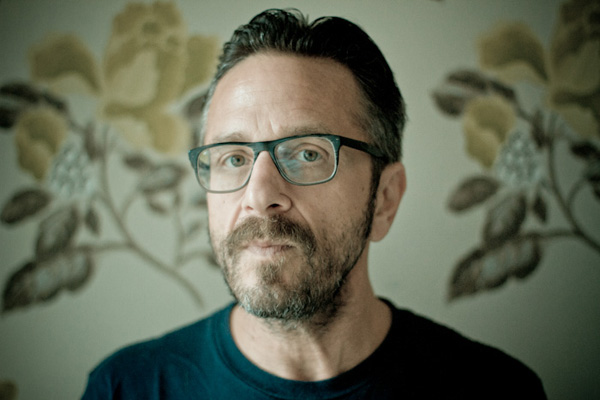
Lots of artists have talked about the need to stir up internal drama sometimes to stay on top of your creative impulse. In the music world I know Tom Petty has talked a lot about that.
Yeah I like to hear that. You know, people are worried about my happiness or contentment. I think it’s possible to have some peace of mind and maybe a little contentment in your life, but that doesn’t mean you are necessarily rewiring your brain. I don’t know that I am going to fall into the same situation as maybe Tom Petty has. I’m not that kind of comic. Or Larry the Cable guy. I’m not going to lock into this tagline or this sound, where people who are making money off of me, or with me are saying, “Just do that again, somehow.” And then fight that fight. I don’t think I’m ever going to be in the position where I am saying “I am tired of making the same record over and over again. I am going to do something way off — no hooks on this record!” [laughs]
But comedy records in general have always been done in segments. If you listen to older comedy records, audience consistency was not an issue. Bits could be from different performances, and I have made records like that. The middle two records, “Tickets Still Available” and “Final Engagement” were mixed down from four shows. They were both taped at the same place but the audience reaction in that setting can be fucked with. You know, to level it off. And that annoys me a little bit, but I think they are good records. But the first record I made [Not Sold Out], some guy taped it on a shitty DAT and it is what it is. It’s really a whole show, give or take a couple of things. And this last one [This Must Be Funny] — I like the sound quality. If it’s 60 people or a hundred people, let it sound like that. Why not? Don’t level it all out. But I’ve got nothing on the guy that made the middle two records. He loves comedy. He’s an over-perfectionist about structuring records. It’s just comedy. Theoretically I could make a CD tonight that would sound like a comedy record on my fucking phone, if I wanted to. That’s the difference between music and comedy.
Sometimes those old DAT’s make pretty great recordings and then, that’s the document.
I like that, and I like music too like that. When I interviewed Jack White the fact that he’s an old analog guy and the way he does these live performances. I think that’s commendable.
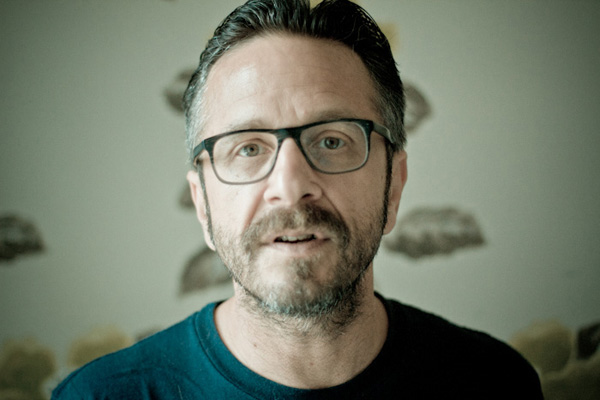
What is your history with music? I know you are a guitar player.
Well I always wanted to be a comic, but when I was younger, music seemed more possible to me. I never really had the chops or the focus or the courage to be in a band for very long. I was never in a working band. As a guitar player I liked to play because I liked getting whatever was coming out of me. I was in high school when Van Halen 1 came out. So “Eruption” was blaring out of Jensen Tri-Axles, back doors open. The parking lot was filled with ’73 Firebirds blaring this shit. Everything had shifted. You just heard that guitar solo. Then of course within weeks there was the dude who had figured it out. And that dude was Mike Garcia. Like I was never that guy. There was no way that was going to happen. I played chords for a long time and then I switched guitar teachers in my teens, and he showed me the pentatonic scales. And that’s where it stopped for me. But I can work that pentatonic pretty well.
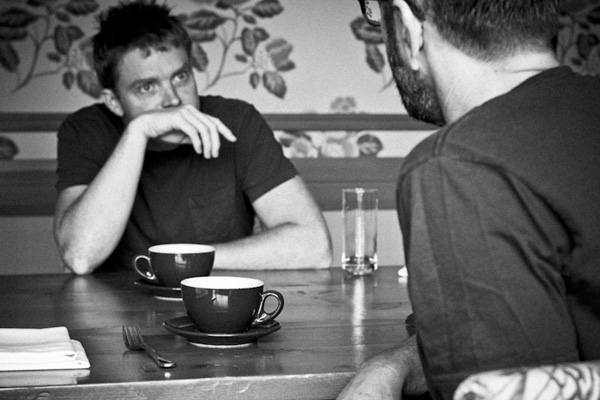
I wish it stopped there for so many other guitar players.
[laughs] I think I’m an okay player — if I worked at it, but it was just not what I worked at. But I love it. I was terrified of singing on stage my entire life because of something that happened at a music camp. I was like fifteen and it was the greatest place in the world, because you go to camp to play guitar and they let you smoke for some reason. I don’t even know how that happened. It was like the best place in the world. “I can sit and play guitar with a cigarette hanging out of my mouth?” I went there two summer in a row. There was a big performance of people at the end, and we sort of put together groups or bands. And I of course get this fucking bunch of idiots and misfits, the guys that were smoking weed. We were 14 or 15.
And then there was this other group of musicians, they were from Philly and they were a lot nerdier than me, and I was always a Stones guy, so I put these fucking idiots together just to play “Johnny B Goode.” I mean it’s a hard song to fuck up. [pauses] And they fucked it up. I mean we fucked it up. The drummer was stoned and there was some guy on piano who was drunk, and I wasn’t singing in key, the rhythm was off, and these guys were laughing while it was going on. It was horrendous. And then this other group went on stage and I think they played an entire side of a Genesis record perfectly. They did a Peter Gabriel song and a great version of “Mystery Dance” by Elvis Costello. And “Mystery Dance” is basically the same thing as “Johnny B Goode,” only it’s cooler, and they did it perfectly. I was just so fucking ashamed. I was horrified. And that really stayed with me.
But then I was on one of these Bring the Rock shows, with a comic Greg Behrendt, where people tell music-related stories, and Greg has a band there to play songs of whatever band they are talking about. And you are allowed to play with the band, or sing if you want. So I said I’m going to try it, and it went great. I played Brokedown Palace by the Dead, and I played What Goes On by the The Velvet Underground. But I did it and I did it well, and I felt like a weight was lifted of my back. Now I’m like “Sure I’ll sing, if I can handle it.” I would like to get more adept at playing lead with other people. Its different than playing at home in your garage. It’s a really steady band. “These guys are good. That Muddy Waters crew. Really nice playing with you guys. It’s perfect. You really nailed it. I’m going to play it again, you nailed it so well.” [laughs]
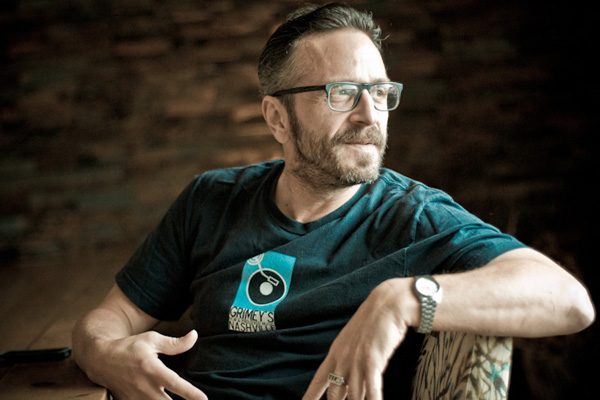
One thing that strikes me about being a performer in a stand-up setting would be the profound silence between words when the audience is not following you. I know a lot of comics talk about having deep insecurities, but it seems to me that it would be much easier to be in a band and be insecure, where if you bomb for 40 minutes, you can kind of stand there and lean on the idea that ‘This is my art, like it or not.’ It seems harder to pull that off when you are trying to deliver a punchline every minute or so.
Well, and I said this before ‚ music has a magical quality where comedy is really a trick. It’s a turn of phrase, you know. I mean I don’t do jokes that are necessarily like that. I invest a lot into it. But you can gauge how you are doing very quickly‚ because of laughter. But also because of that, you’re not gonna lose yourself in comedy like you can when you are playing music. I mean you can be elated if you get on a roll, and you are hitting it on all cylinders and all the jokes are popping, and there’s that moment where you’re at one with an audience. But you never get the opportunity to sort of close your eyes on stage, during that roll, and just get lost in the groove. You know no audience in a comedy club is ever going to sway and hug each other [laughs].
You don’t get the occasional hippies dancing up front?
No. I wish I had some of that. I would love for that to happen. I would like to make that happen.
Was there a time when you were younger when you were watching a comedian or a film, or seeing some piece of art and a switch flipped on in your brain and you thought, “I think I have to pursue this.”
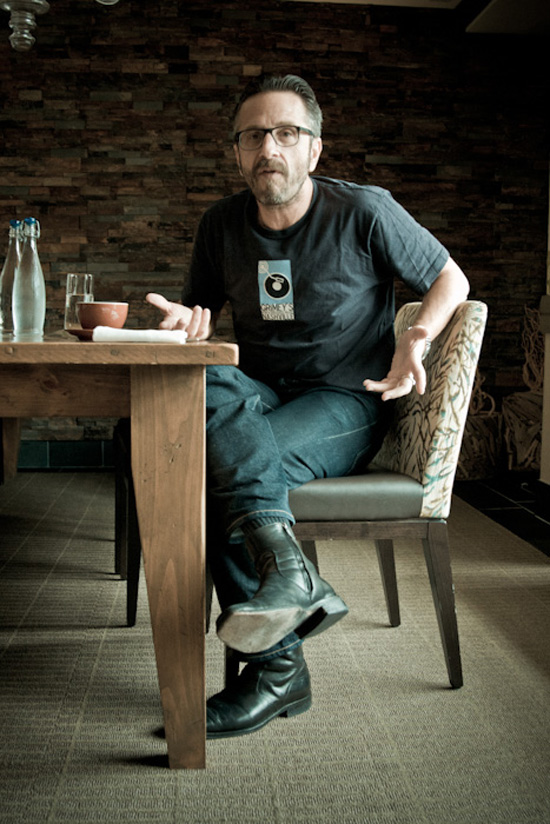
When I was very young just watching them on TV, guys on the Merv Griffith show after school, and I certainly liked a few older comics like Buddy Hacket, Jackie Vernon and stuff I’d seen on Dean Martin roasts or whatever. But then SNL started happening when I was thirteen or fourteen, and I also got into buying comedy records. Like Cheech and Chong, George Carlin, and I remember when Steve Martin was out, I didn’t love him as much, but I had the records.
But when I was about fifteen, me and my buddy Dave went to a midnight movie and we saw Richard Pryor: Live In Concert. And that was really something. To be in a theater with my buddy, and just hysterical for an hour and a half. But there was something, looking back on it, and judging by what I evolved into doing, there was the realness of what he was doing and the emotions invested, and that you could feel a guy moving through stuff, in an emotional way. He was very vulnerable on stage, and it was so funny and so personal. And I think that’s what really blew my mind.
But I’ve had that with music to some degree. There was a time when I was in high school when I got a little hipper, I got really into the Fabulous Thunderbirds and Jimmie Vaughan – who I actually like better than his brother [Stevie Ray Vaughan]. He was a fabulous guitar player I mean I listen more to the Thunderbirds than I do to Stevie. I don’t why. It just seems more earnest. But I went to see them at a biker bar outside of Albuquerque called The Golden Inn which burned down. You know we drove out there, put on our second hand shark-skin suits, and went out just to see these sweaty motherfuckers, you know? They looked like ex-cons. To see Kim Wilson up there jamming on that harmonica. It was as close as I got to a kind of Juke-joint situation, and it kind of blew my mind.
Then after college I remember taking a train across country because I thought that I wanted to see America, but you know you realize when you take a train, the “other side of the tracks” is a real thing and that’s really all you see of America. You’re just going through a lot of towns going “What neighborhood is this?” But I ended up in Memphis and I remember going down Beale street and there was some dude playing guitar, some dude with a beat up weird open tuning, and he was beat up, but he was jamming on an amp and there was some dude dancing to it in a way that I had never really seen people dance. This black dude was just grooving to this. It was just these real moments.
And years later I saw John Hammond. I told Jack White about this actually. Because you know John Hammond Jr. is an amazing blues performer. I don’t know if he gets the credit that he deserves or what, but the first album where he’s just got an acoustic guitar and his harmonica — you know there is some shit that he can do with those two things that I’ve never seen before. And I saw him once, it was a random thing. I was in Tucson visiting my brother in college and John Hammond was playing at the Tucson Blues Society and I was like, what could that be? For a fairly cheap ticket. And they must have flown him out. They didn’t make enough money to pay him. There must have been 50-60 people there. It was just him and the National Steel and his harmonica. I had been sweating over Robert Johnson trying to figure out why it was so enchanting and creepy, and then I saw John Hammond and he did Hell Hound’s on My Trail to the note. With the harmonica and with that National. And it was almost as if he had summoned something and that it explained it all to me. And that moment will never happen again. So I have had those moments with music too.
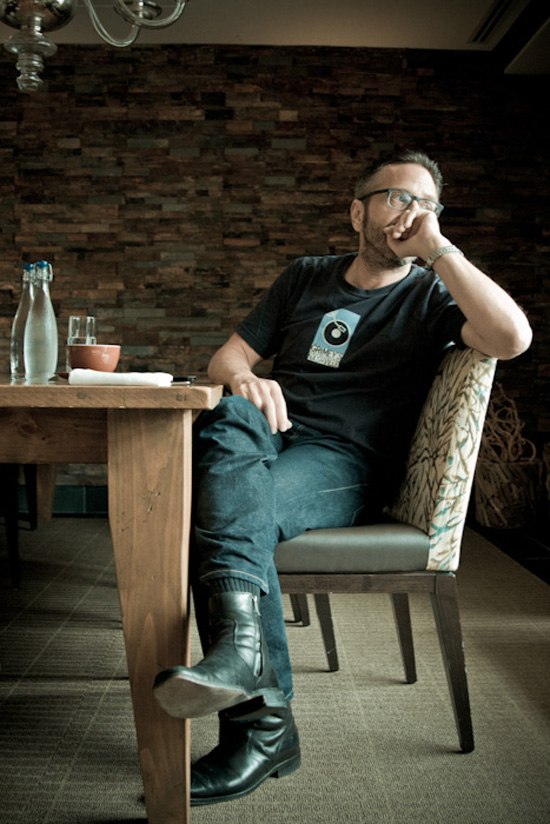
When you approach an audience in a comedy club, how different is it from what you do when you are approaching a podcast audience? I wouldn’t imagine it’s the same frame of mind.
No, it’s different. I’ve spent almost half my life on stage doing standup, so there’s definitely a big part of me that exists up there, that has defined my own space up there, and my instincts are completely in tune with that situation. So the experience of me talking to you right now, or me talking alone on a microphone is very different.
The context here is conversation. The context of me talking alone on a mic is sort of a stream of consciousness exploration of, usually, my ideas in the moment. I do very little preparation for those monologues and most of the time they work because it’s just me talking. But what I find during them — I don’t really know what’s going to happen. It’s a completely different [type of] speaking. It’s a type of performance, but who I am on that mic, or what happens to me when I turn those mics on, is definitely not — me doing this right now.
And it’s not me being on stage in front of people. I don’t think when I am doing those monologues in my garage that, you know, 250 thousand people are listening to it. I don’t think about it. I don’t know why. I think like in a general sense, “Maybe I shouldn’t say that or maybe I should say this, but not “I’m standing in front of 250 thousand people.” Because I’m not. I am basically talking to one person in their car, or on their treadmill, or in their cubicle. But yeah, performing standup is a different set of expectations or a different set of tools or craft or whatever the hell you want to call it.
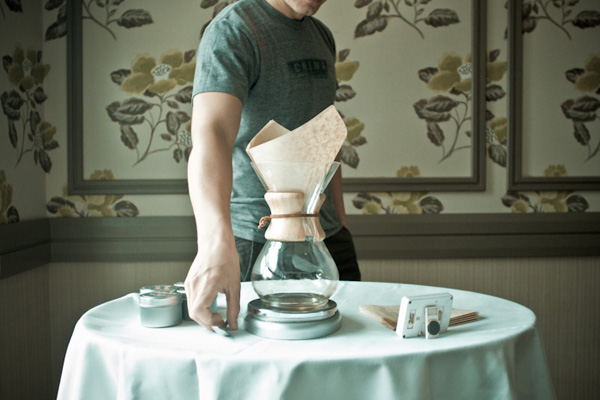
I know you have never been much of a fan of comedians with a musical schtick, but can you think of any time where you thought it was working?
It’s really the domain of song parodies. And there is something about guitar acts, when you close with a funny song. It’s always a little cheap to me. But there are people that have used music to an effect that is funny. When Zach Galifianakis used to do the piano thing. There was something funny about that. I don’t think he really knows how to play that much. But this sort of weird Keith Jarret-like bullshit that he would play under the jokes. That was using it to an effect. I have less of a problem with that. I think Steve Martin was really a frustrated musician anyways, and the way that he used it was better than parody. I think what I really have a difficult time with is song parody, so few people do it well. Even Al Yankovic who is a genius and who really turned on a lot of kids to humor and the possibilities of that – he does it best, and it was not my thing. But after talking to [Weird Al] and really assessing it, it really is it’s own thing. Alan Sherman did funny songs and funny songs have there place in the world. There’s even singer-songwriters that have a sardonic wit as sort of a trademark of what they do.
John Hartford had a fantastic wit, even though occasionally he wasn’t afraid to get into hokey territory. But when he was good he was so good.
Yeah I think hokey is a good word for it. I interviewed Todd Snider, I’ll be putting that out soon. He lives here. but he’s got some stuff that’s sort of dark comedy and it’s a way of performing, and there is a language to songwriters that do that that I think is very compelling. But that is their thing. Comics that do musical comedy, it was just never my thing. I don’t have any integrity beef with it it’s just not bag. But you know, certainly some comics have used it to good effect. But funny songs, after the first refrain you usually get it and so now it’s, ” We’ve got three more verses of this?”
Check out our Music and Comedy Special Issue, Starring Jimmy Fallon, on stands now.

